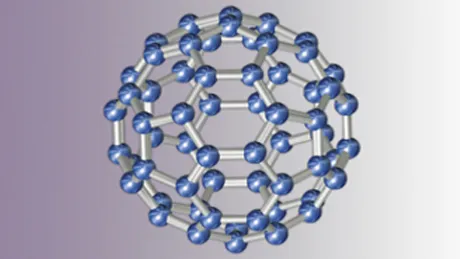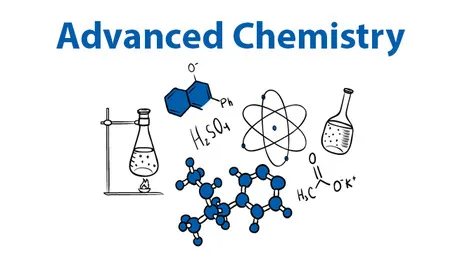
Measurement Technique in Multiphase Flows 
This course provides an overview of measurement techniques used to monitor and map multiphase flows. It covers both invasive and non-invasive techniques, including the basic principles, equations, post processing methods, advantages and limitations of each. Students will gain an understanding of the complex flow physics involved in multiphase flow reactors and how to measure them. Online learning will be used to help students understand the concepts. ▼
ADVERTISEMENT
Course Feature
![]() Cost:
Cost:
Free
![]() Provider:
Provider:
Swayam
![]() Certificate:
Certificate:
No Information
![]() Language:
Language:
English
![]() Start Date:
Start Date:
5th Feb, 2018
Course Overview
❗The content presented here is sourced directly from Swayam platform. For comprehensive course details, including enrollment information, simply click on the 'Go to class' link on our website.
Updated in [May 25th, 2023]
This course will provide learners with a comprehensive overview of the measurement techniques used in multiphase flow reactors. Learners will gain an understanding of the different types of techniques, such as invasive and non-invasive, and the advantages and limitations of each. They will also learn the basic principles, equations, and post-processing methods associated with each technique. Additionally, learners will gain an understanding of the complex flow physics involved in multiphase flow reactors and how to monitor and map them. Finally, learners will be able to apply the knowledge gained in this course to their own research and development projects.
[Applications]
The application of this course can be seen in the design and optimization of multiphase flow reactors. After taking this course, students will be able to select the most suitable measurement technique for their application and will be able to understand the basic principles, equations, post processing methods, advantages and limitations of each technique. They will also be able to design and optimize the multiphase flow reactors based on the data obtained from the measurement techniques.
[Career Paths]
1. Process Engineer: Process engineers are responsible for designing, developing, and optimizing industrial processes. They use their knowledge of multiphase flow reactors to develop efficient and cost-effective processes. Process engineers must be able to use the measurement techniques discussed in this course to monitor and map multiphase flow reactors. The development of new technologies and the increasing demand for more efficient processes are driving the need for process engineers with expertise in multiphase flow reactors.
2. Research Scientist: Research scientists use their knowledge of multiphase flow reactors to develop new technologies and processes. They use the measurement techniques discussed in this course to monitor and map multiphase flow reactors and to develop new technologies and processes. The increasing demand for more efficient processes and the development of new technologies are driving the need for research scientists with expertise in multiphase flow reactors.
3. Data Analyst: Data analysts use their knowledge of multiphase flow reactors to analyze data from the measurement techniques discussed in this course. They use this data to identify trends and patterns in the flow dynamics of multiphase flow reactors. The increasing demand for more efficient processes and the development of new technologies are driving the need for data analysts with expertise in multiphase flow reactors.
4. Consultant: Consultants use their knowledge of multiphase flow reactors to advise companies on how to optimize their processes. They use the measurement techniques discussed in this course to monitor and map multiphase flow reactors and to develop strategies for improving efficiency. The increasing demand for more efficient processes and the development of new technologies are driving the need for consultants with expertise in multiphase flow reactors.
[Education Paths]
1. Mechanical Engineering: Mechanical engineering is a field of engineering that focuses on the design, construction, and operation of machines and mechanical systems. It is one of the oldest and broadest engineering disciplines. Developing trends in this field include the use of advanced materials, robotics, and automation, as well as the development of new technologies such as 3D printing and additive manufacturing.
2. Chemical Engineering: Chemical engineering is a field of engineering that focuses on the design, development, and operation of chemical processes. It is a multidisciplinary field that combines chemistry, physics, mathematics, and other sciences to develop processes and products. Developing trends in this field include the use of advanced materials, nanotechnology, and biotechnology.
3. Aerospace Engineering: Aerospace engineering is a field of engineering that focuses on the design, development, and operation of aircraft and spacecraft. It is a multidisciplinary field that combines physics, mathematics, and other sciences to develop aircraft and spacecraft. Developing trends in this field include the use of advanced materials, robotics, and automation, as well as the development of new technologies such as hypersonic flight and space exploration.
4. Nuclear Engineering: Nuclear engineering is a field of engineering that focuses on the design, development, and operation of nuclear reactors and other nuclear systems. It is a multidisciplinary field that combines physics, mathematics, and other sciences to develop nuclear systems. Developing trends in this field include the use of advanced materials, robotics, and automation, as well as the development of new technologies such as fusion reactors and nuclear waste management.
Course Provider

Provider Swayam's Stats at AZClass
Discussion and Reviews
0.0 (Based on 0 reviews)
Explore Similar Online Courses

Conflict Resolution Skills

Managing Family Businesses for Sustained Success

Python for Informatics: Exploring Information

Social Network Analysis

Introduction to Systematic Review and Meta-Analysis

The Analytics Edge

DCO042 - Python For Informatics

Causal Diagrams: Draw Your Assumptions Before Your Conclusions

Whole genome sequencing of bacterial genomes - tools and applications

General Chemistry: Concept Development and Application

Advanced Chemistry

Free Chemistry Tutorial - Chemistry 101 - Chemistry in Society
 Related Categories
Related Categories
 Popular Providers
Popular Providers
Quiz
 Submitted Sucessfully
Submitted Sucessfully
1. Which of the following is an invasive technique for measuring multiphase flows?
2. Which of the following is a non-invasive technique for measuring multiphase flows?
3. Which of the following techniques is used to measure the velocity of a multiphase flow?
4. What are the two parts of measurement techniques discussed in the course?
Correct Answer: Invasive and non-invasive


Start your review of Measurement Technique in Multiphase Flows